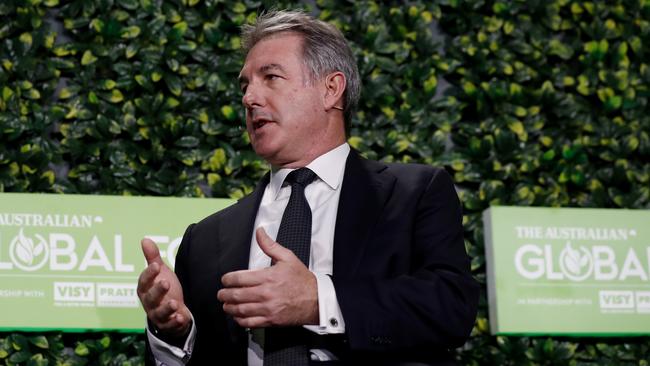Grain demand a growth industry despite economic challenges
Labour challenges have eased for Australia’s grain industry and there are opportunities from decarbonising the economy, GrainCorp chief Robert Spurway has told the 2024 CEO Survey.

How is inflation and the prospect of higher-for-longer interest rates affecting your business? Importantly, is the behaviour of your customers changing?
We continue to see strong demand for Australian grain and products, and the pricing for those products is set by the commodity markets.
By nature, those markets incorporate higher interest rates and other inflationary costs into the overall pricing, so we don’t have to negotiate or pass on higher costs to our customers.
This highlights the resilience of the grains sector for our customers – people always need to eat.
For GrainCorp, our focus on cost management and the way we’ve diversified our business has helped us to manage volatility in a higher inflationary environment.
How would you rate the shape of the Australian economy as we head into the New Year?
We’re optimistic about the shape of Australia’s economy in 2024.
Australia is a resilient nation and our agriculture industry is a key pillar of our economic health, both from a productivity and quality perspective.
There’s still high demand for Australian grain and this extends across food, feed and fuel, so it’s a rising tide that lifts all boats.
Labour challenges have eased somewhat given we can once again move workers around the country, and thanks to the strong career opportunities that the industry provides.
What do you think is the big area of reform needed to happen so the Australian economy (and your business) can sustainably reach full potential?
The decarbonisation of the transport industries will be key to supporting Australia’s emissions reduction ambitions.
There’s an exciting opportunity in biofuels, and the role that agriculture can play in providing feedstocks for sustainable fuels in the aviation sector. Moving agricultural production efficiently to our ports is also a strong step to a more sustainable future; we recognise it needs to be affordable, but sensible investments in rail infrastructure by the government will be crucial in the years to come.
Australia has six years to meet its 2030 targets for a 43 per cent reduction in baseline emissions. What needs to happen here?
GrainCorp has decreased emissions across processing sites by 11 per cent per tonne of production in the last year, and we’ve committed to setting science-based targets for emissions reductions.
Reducing emissions has to be a joint commitment by industry and government – it can’t be done alone or by the few. We need to increase education and focus on setting strong policy for the years to come in order to decarbonise major transport sectors.
What external issues do you expect to impact or disrupt your business within the next 12 months – the so-called 3AM thought?
The world is a volatile place, and seeing first hand the impacts of the Black Sea conflict on GrainCorp’s team in Ukraine has kept the safety of our people firmly front of mind.
It’s also a reminder that food will always be a critical resource, and so maintaining Australia’s access to global markets so that farmers can continue feeding the world is a crucial way to maintain stability.
Cyber safety is a priority for us and no doubt many others, with the increasing sophistication of attacks on businesses and consumers. It requires an concerted effort to defend our systems.
What level of adoption is your business currently at with the use of AI technology?
GrainCorp has invested in companies that use AI to digitise and drive innovation in the agriculture industry.
Products like ZoomAgri use AI to finesse the onsite testing process for high-quality malting barley, which benefits the entire supply chain, from the grower through to the end customer.
We’d encourage the use of AI where it supports better business outcomes for the majority, while making sure the risks are managed with appropriate cyber controls in place.
Is business getting the balance right between investor, customer and other stakeholder demands when it comes to ESG issues?
GrainCorp’s team has taken big steps over the past two years to redesign our sustainability strategy and reporting. We’re proud of our holistic approach to the E, S and G in equal measure.
Governance underpins our ability to follow through on the commitments we make in our Sustainability Report, and promotes a culture of compliance, ethical behaviour, integrity and respect.
How has your organisation’s approach to staff working from home evolved since the pandemic?
The majority of GrainCorp’s workforce operate our valuable assets at over 160 grain handling sites, seven ports and processing facilities, and the nature of this physical and highly skilled work requires in-person presence.
Where the roles allow it, we offer flexible working arrangements with at least three days a week in the office. This is part of our goal to strike the right balance between personal life and continued connection to the team, and to be an employer of choice.
Robert Spurway is the chief executive and managing director of GrainCorp







To join the conversation, please log in. Don't have an account? Register
Join the conversation, you are commenting as Logout